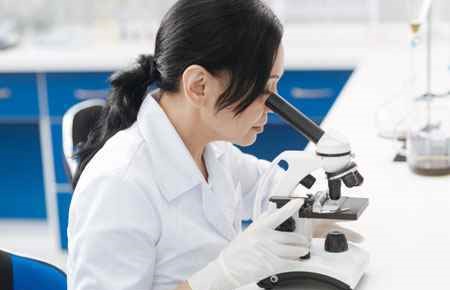
Cytotechnology/Cytotechnologist Major
This major is a program that prepares individuals to work with pathologists to detect changes in body cells that may indicate, and permit diagnosis of, the early development of cancers and other diseases.
Includes instruction in biochemistry, microbiology, applied mathematics, microscopy, slide preparation, identification of cellular structures and abnormalities, and laboratory procedures and safety.
What can you do with a major/degree in Cytotechnology/Cytotechnologist Major?
As a Cytotechnologist, it is your job to stain, mount, and study cells to detect evidence of cancer, hormonal abnormalities, and other pathological conditions following established standards and practices.
Job opportunities for cytogenetic technologists are very strong in the future as this career subsector is expected to see a five-seven percent (5-7%) growth 2019-2029.
Thirty-eight percent (38%) of individuals working as a cytotechnologist have an earned bachelor’s degree. Sixty-two percent (62%) have a postbaccalaureate certificate.
Trade Associations and Professional Organizations in Cytotechnology/Cytotechnologist Major
Professional associations are groups of professionals dedicated to topics in specific fields. Professional associations provide a wealth of online resources, some of which are geared specifically towards students. These organizations typically also host conferences and events, providing great opportunities for learning and networking across your field of interest.
- Association of Genetic Technologists
- Coordinating Council on the Clinical Laboratory Workforce
- The American Society of Human Genetics
- The American Society for Clinical Laboratory Science
- American Society of Cytopathology
Publications/Magazines in Cytotechnology/Cytotechnologist Major
